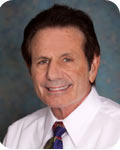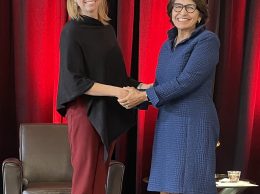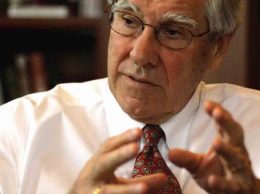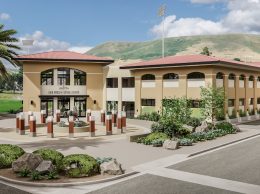Political correctness in college has no place in the workplace

Steven Mintz
By Steven Mintz
Imagine you have recently graduated from college and have begun your work career at a company that values diversity. One challenge may be to transition from a college environment that was less tolerant of views that might offend one group or another to a workplace where diversity of thought is valued.
Political correctness on college campuses is more prevalent today than ever before. Colleges have “safe places” where individuals can gather and share ideas unimpeded by opposing views that might not be welcome. Colleges that restrict free speech ostensibly do so to promote order on campus and maintain it is necessary to protect constitutionally protected rights of free expression. The irony is it may have the opposite result.
Colleges with safe zones control where and when protests against one form of speech can take place. Some colleges have changed from promoting a free marketplace of ideas to one that can shut down the free speech rights of those with opposing views in the name of political correctness.
In a recent study by the Fire Organization, a group that promotes the protection of faculty and student rights, it was found that one in six colleges have established free speech zones, including Cal Poly San Luis Obispo and CSU Channel Islands.
These policies limit discussion to areas such as a “University Commons” and may have the unintended consequence of impeding an open dialogue on controversial issues.
For diversity of thought to flourish, both sides must talk to each other and debate the issue without fear of restraint or retribution.
Free speech zones are particularly troubling at universities that should serve as laboratories for the exploration of different ideas. How can this take place when one side of an issue is restricted to one space and the other to another space? Safe zone policies may lead some with divergent points of view to believe their voices go unheard, at least at the restricted areas.
This is antithetical to an open and free exchange of ideas and may have implications for the workplace where diversity of thought is encouraged.
Organizations should foster an attitude of openness that encourages employees to express their ideas and opinions and attribute a sense of equal value to all. The problem with growing up on a campus that promotes free speech zones is it may not translate very well to the workplace.
Does this mean that those who want their voices to be heard can only do so only in designated areas, perhaps a separate office? A group of workers with views in opposition to organization policies may believe they can only discuss them in a “closed environment.” This doesn’t work well in the workplace, where all sides of an issue should be discussed openly and without fear of retaliation.
The workplace culture drives the ethics of the organization. Ethical standards require valuing all opinions equally. Students right out of college may transfer the notion of a safe zone to the workplace and come to believe they should filter their thoughts and not express them when they deviate from organizational norms. Workplace diversity demands that employees should be encouraged to express their ideas and opinions and attribute a sense of equal value to all.
Another issue is whether today’s graduates that grew up in a culture where safe zones were the norm can get along with their peers and workers of other generations that value transparency. Would they be less productive? Might they hold back on expressing their points of view for fear of offending one group or another? The result could be a festering of unresolved problems that infects the entire organization.
Political correctness exists in many forms. In the workplace it can be dangerous because it stifles open expression.
The field of organization development holds that managers must learn to manage the informal, personal aspects of a company. Although organizations may not literally be alive, when it comes to running and changing them they might as well be.
In that light, the primary challenge facing a business leader is to understand the various elements of the organization and manage it to foster productive growth and change.
It becomes more difficult when one group or another closely guards their point of view in the name of political correctness.
• Steven Mintz is professor emeritus at Cal Poly San Luis Obispo. Read his blog at www.ethicssage.com.











